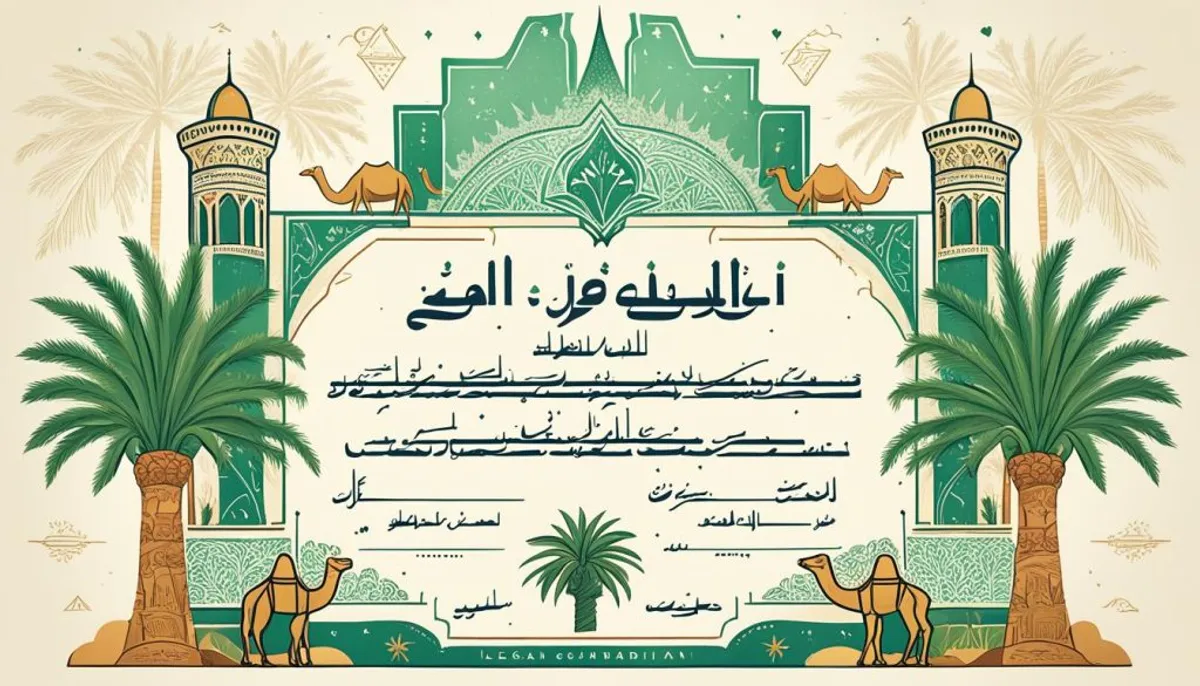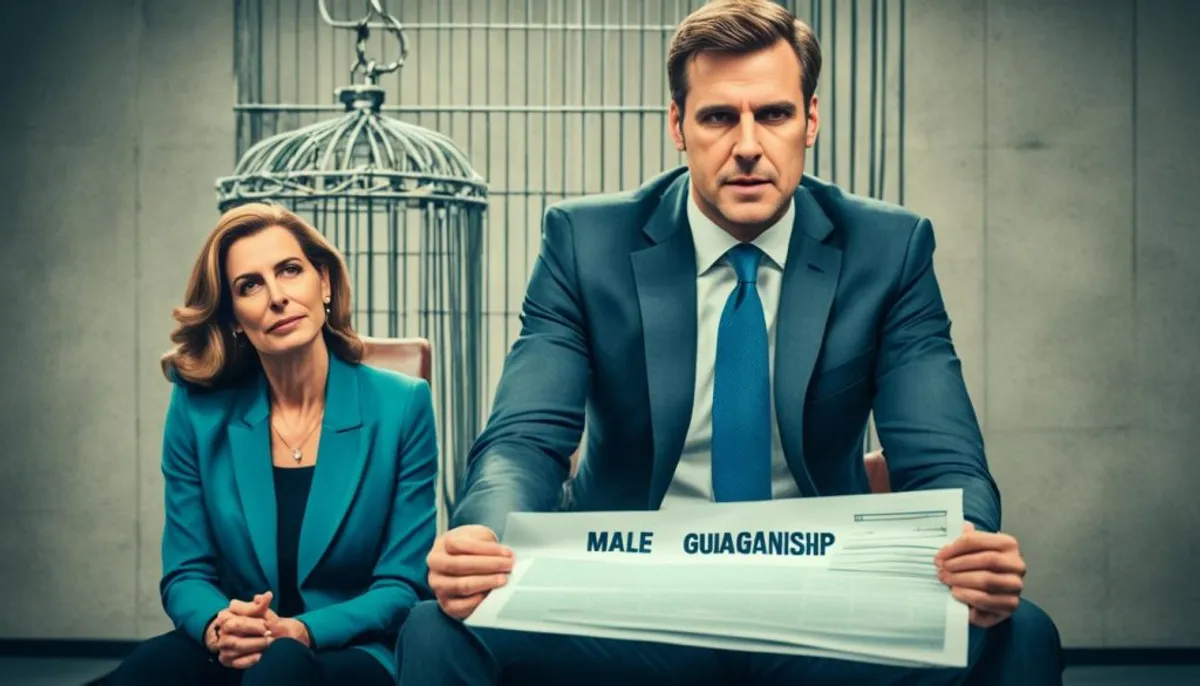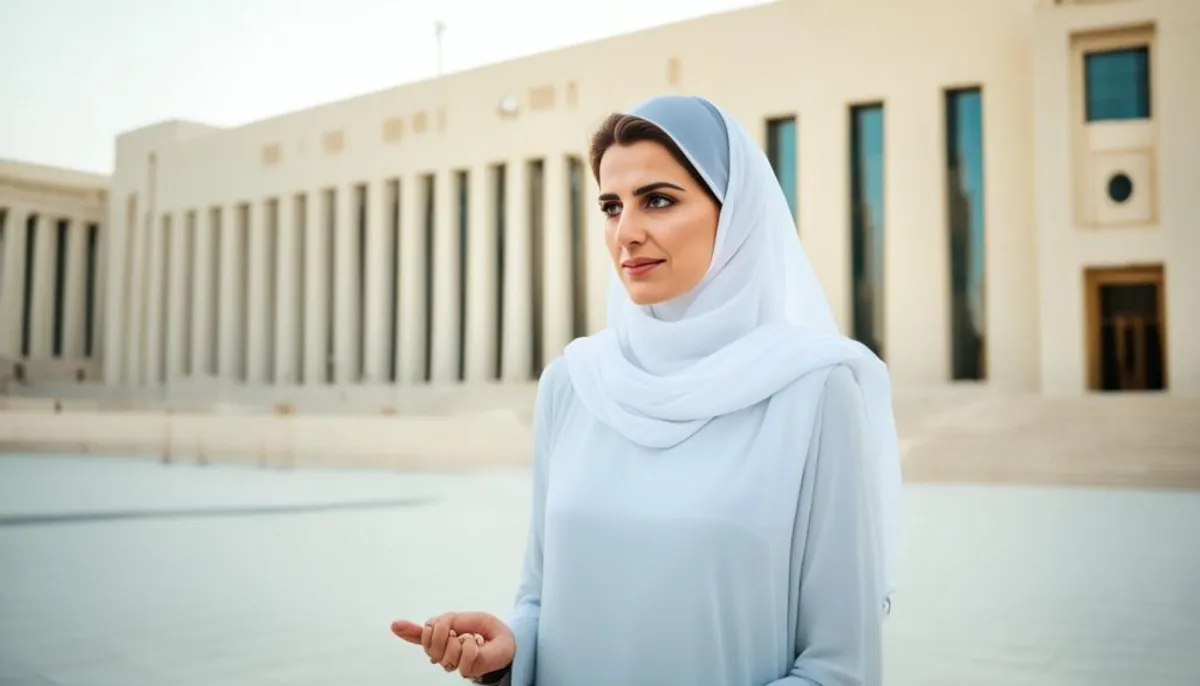In Saudi Arabia, the link between marriage and legal guardianship is very important. It affects the rights and duties of people in families. This article looks into the male guardianship system, changes from the Personal Status Law, and how they affect women’s rights. This includes their rights as parents and in child custody.

Saudi Arabia is known for its traditional gender roles and male-led society. But, the country has made big changes in recent years. These changes have changed personal and family rights. Looking into how marriage affects legal guardianship in Saudi Arabia shows how these changes are impacting citizens’ lives.
Introduction
The legal system in Saudi Arabia is complex, with marriage and guardianship laws affecting people’s lives. These laws are key to understanding women’s rights and the social structure of the country.
Overview of Marriage and Guardianship Laws
In Saudi Arabia, marriage and guardianship are closely linked. Women need a male guardian, usually a father, brother, or husband, to approve their marriage. This guardian role affects a woman’s life beyond marriage, impacting her daily decisions.
Importance of Understanding Legal Guardianship Rights
It’s vital to understand Saudi Arabia’s marriage and guardianship laws, especially for women. These laws influence their personal and family lives. They affect things like travel, work, and decisions at home. Knowing the laws helps people, especially women, fight for their rights and make informed choices.
| Key Aspects of Marriage and Guardianship Laws in Saudi Arabia | Implications |
|---|---|
| Male Guardianship System | Requires women to have a male guardian who must consent to important life decisions |
| Limitations on Women’s Decision-Making Powers | Women’s autonomy is restricted in areas such as travel, employment, and healthcare |
| Recent Reforms in the Personal Status Law (2022) | Introduced changes to address long-standing criticisms from human rights organizations |
This article will explore the male guardianship system, the personal status law, and efforts to improve women’s rights in Saudi Arabia.
Male Guardianship System in Saudi Arabia
In Saudi Arabia, the male guardianship system has controlled women’s lives for a long time. It treats them as legal minors needing a male guardian’s okay for important decisions. This has greatly limited women’s personal freedoms and their power to make choices. They often can’t work, get family records, or travel without a male guardian’s say-so.
When Saudi Arabia joined the Convention on the Elimination of All Forms of Discrimination Against Women (CEDAW), it faced a big challenge. The country promised to follow CEDAW but human rights groups worry about ongoing gender-based discrimination in its laws.
- The male guardianship system makes Saudi women need a male guardian’s okay for many life decisions. This guardian could be a father, husband, or even a son.
- This system gets a lot of criticism for taking away Saudi women’s personal freedoms and their right to make their own choices.
- Even though Saudi Arabia signed CEDAW, the male guardianship system is still a big hurdle to gender equality. It doesn’t match the country’s promises to follow international human rights.

The male guardianship system in Saudi Arabia shows the complex challenges the country has in changing its laws and culture, particularly regarding guardianship laws in saudi arabia. For real gender equality, the country needs to deeply review and change its laws and social norms.
The Personal Status Law of 2022
In 2022, Saudi Arabia brought in a new personal status law. It aimed to set clear rules for marriage, divorce, and child care. This law has gotten mixed reactions from human rights groups and women’s rights supporters.
Key Provisions of the Personal Status Law
The Personal Status Law has some key parts that affect Saudi women’s lives. It makes the male guardianship system official. This means women need a male guardian’s okay to marry, travel, or make big life choices. The law also says fathers are the default guardians of children, which limits mothers’ decision-making power.
Criticism from Human Rights Organizations
Even though the Personal Status Law says it’s for family values and gender equality, human rights groups are against it. They say it makes gender discrimination worse and doesn’t meet Saudi Arabia’s promises under the Convention on the Elimination of All Forms of Discrimination against Women (CEDAW). Critics believe the law keeps the male guardianship system and takes away women’s basic human rights.
Saudi Arabia is still dealing with the complex issues of women’s rights and gender equality. The Personal Status Law of 2022 is a big topic of debate. There are calls for it to be changed to meet global human rights standards.
Does Marriage Make You a Legal Guardian
In Saudi Arabia, marriage and legal guardianship are closely linked. The Personal Status Law says that when you get married, you become a legal guardian of your spouse. This means the husband has a lot of power to make decisions for his wife and kids. Additionally, understanding the guardianship laws in saudi arabia is crucial for navigating these relationships.
When a couple gets married, the husband becomes the legal guardian of his wife. He is called the wali, or protector. He can make important decisions for his wife, like where she can go, what job she can have, and even her medical care. The wife must follow her husband’s decisions and ask him for permission for many things in her life.
When a marriage ends in divorce, the husband usually still has the right to be the legal guardian of the kids. The mother has less power to make decisions about their care and well-being.
| Aspect | Husband’s Role | Wife’s Role |
|---|---|---|
| Travel Approval | Required | Requires husband’s consent |
| Employment | Can approve or deny | Requires husband’s consent |
| Medical Treatment | Can approve or deny | Requires husband’s consent |
| Child Custody | Default legal guardian | Limited decision-making powers |
Human rights groups have criticized the male guardianship system. They say it takes away women’s freedom and keeps men more powerful in Saudi Arabia.
Parental Rights and Child Custody
In Saudi Arabia, the male guardianship system and the Personal Status Law greatly affect parental rights and child custody. The law makes fathers the default legal guardians of children. This gives them a lot of power to make decisions. At the same time, it limits what mothers can decide about their children’s lives.
Fathers as Default Legal Guardians
In Saudi Arabia, fathers are seen as the legal guardians of their children, whether the parents live together or apart. They have the last word on important choices like their children’s education, health, and more.
Limitations on Mothers’ Decision-making Powers
- Mothers in Saudi Arabia often face limits on their decision-making about their children’s lives, even if they take care of them most of the time.
- When parents are divorced or apart, mothers might not be able to make some choices without the father’s okay. This includes things like choosing schools or trips for their kids.
- This imbalance in decision-making power can lead to situations that don’t always put the best interests of the child first.
The male guardianship system and the Personal Status Law in Saudi Arabia make a legal setup that gives fathers more rights than mothers in parental rights and child custody. This has made human rights groups worry about the effect on women’s rights. They also worry it might not always be good for the best interests of the child.
Impact on Women’s Rights
The male guardianship system and the recent Personal Status Law in Saudi Arabia have greatly affected women’s rights and gender equality. These laws limit women’s freedom and their basic human rights. Despite efforts to reform, women’s autonomy and agency are still restricted.
In Saudi Arabia, women need a male guardian’s okay for many things like traveling, working, and seeing a doctor. This setup has drawn fire from human rights groups like CEDAW. They say it goes against women’s basic freedoms and doesn’t meet global human rights standards.
The Personal Status Law of 2022 brought some good changes, but it didn’t fix everything. It still puts dads in charge of kids, giving moms limited say. This keeps the gender gap and weakens women’s rights at home.
Reactions to legal reforms in Saudi Arabia are mixed. Some steps forward have been taken, but human rights groups say more is needed for gender equality and women’s rights. The challenge is big to make Saudi Arabia’s laws match its human rights promises under CEDAW.

Conclusion
In conclusion, the relationship between marriage and legal guardianship in Saudi Arabia shows the ongoing challenges women face. The 2022 Personal Status Law has made some progress, giving women more freedom. Yet, the male guardianship system still limits their rights and choices, even in marriage and family. This includes expressing love on anniversary celebrations, which can often be overshadowed by legal constraints.
This article has shown how marriage, legal guardianship, and women’s rights are linked in Saudi Arabia. It’s clear that the country needs to follow international human rights standards. This includes the Convention on the Elimination of All Forms of Discrimination Against Women (CEDAW) to give women full equality and freedom.
For women’s rights to improve, more legal changes and a push against deep cultural norms are needed. Changing these norms will empower Saudi women and protect their rights. Only with these changes can the kingdom meet its promise of gender equality. This way, marriage won’t stop women from enjoying their freedoms and chances.
RelatedRelated articles



